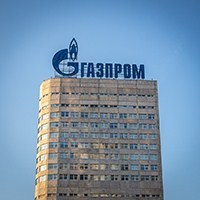On May 28, the European Commission released its comprehensive energy security strategy. Although the immediate goal is to avert another winter energy crisis such as those Europe experienced in 2006 and 2009, the long-term objective is to reduce European Union reliance on vulnerable foreign energy supplies, especially from Russia. The European Council, comprised of the member states’ heads of state or government, will discuss the proposed plan at its June 26-27 session.
Europe’s core challenge is that its energy demand will rise by an estimated 27 percent by 2030, while EU domestic energy production is falling. EU countries already rely on external suppliers for more than half their energy needs at a cost of over one billion euros each day. EU members rely on external sources for 88 percent of their crude oil and 66 percent of their natural gas consumption. Even in the case of solid fuels such as coal, the EU receives almost half its deliveries from non-EU members.
EU governments fear that this situation deprives them of bargaining leverage while making them vulnerable to external supply shocks and political blackmail. For example, Europeans’ dependence on Russian energy supplies makes them reluctant to challenge Moscow’s policies on Ukraine by supporting energy sanctions.

